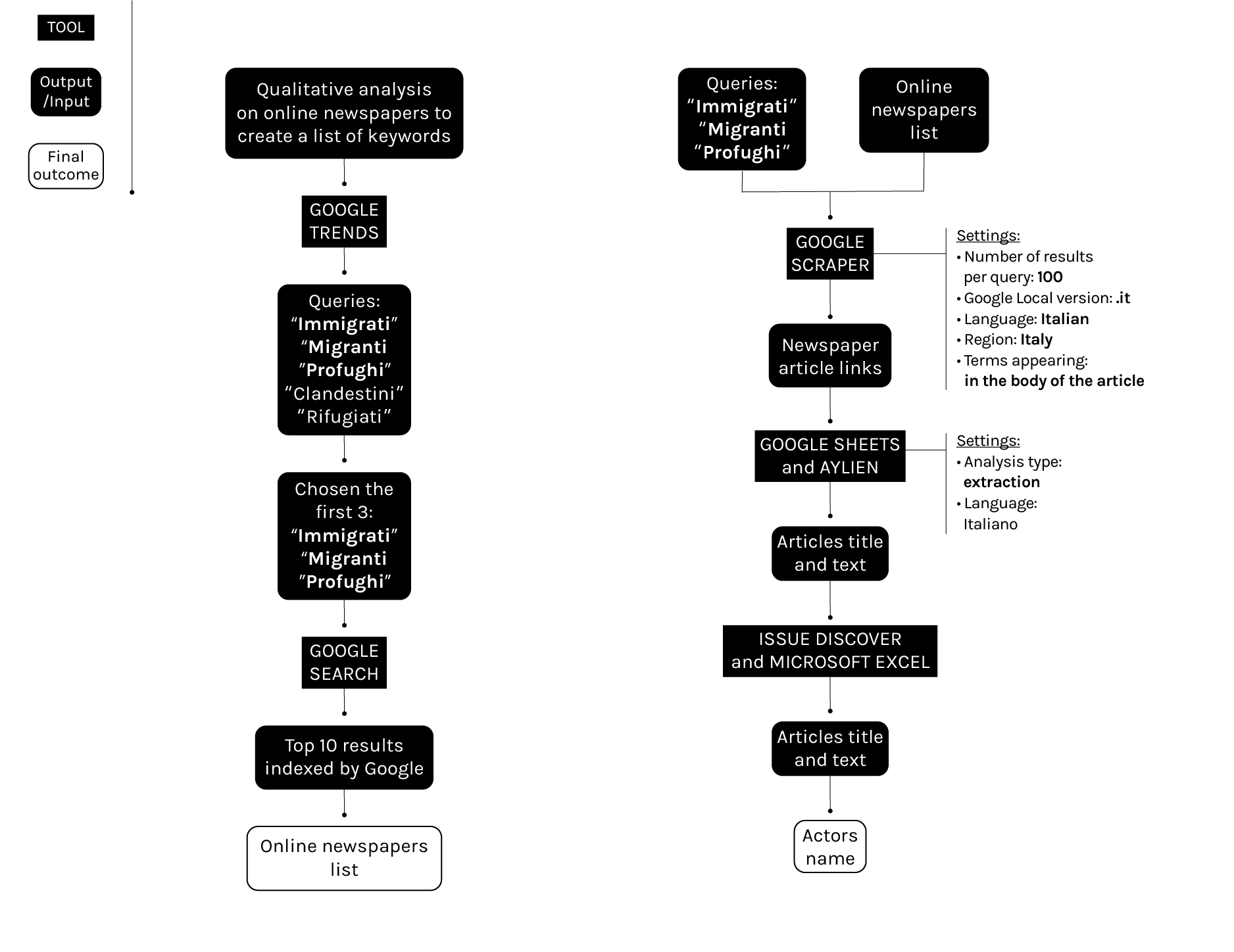Description
The first approach to the research had been a screening to better understand how Google renders migration. At first we needed to individuate the main discussed themes in the online debate, so we started a qualitative snowball research on a 70 sites sample, listing keywords and main issues for each of them. This step had been fundamental to hypothesize the presence of relatively isolated groups which shared the same opinion about the migration phenomenon. The interesting thing we noticed was that each group focused on different small aspects of the phenomenon to describe it in toto.
Firstly we isolated the terms which were the most used to refer to migrants. Then we ranked them with Google Trends in order to understand which one was the most popular between the researches on the browser. The top five ranked terms were: “immigrati”, “migranti”, “profughi”, “clandestini” and “rifugiati”. At this point a further and additional selection was necessary. Comparing these words on Google Trend (first visualization above) we obtained the first three preeminent terms typed on Google most frequently in 2016: “immigrati”, “migranti” and” profughi”. So we googled these three queries to obtain the most indexed websites. As shown by the second visualization the research outcome firstly indexed a huge majority of newspaper websites (73% in a sample of ten results per query) and a small amount of other fragmental sources (Wikipedia pages, organizations websites and a blog).
Due to the majority of online newspapers and since newspapers are still highly important in public opinion shaping; we decided to focus on this path in order to list the most influential actors of the debate. To do this we searched for the most quoted forenames, and politicians-political party’s names. The result is displayed by the third visualization.


